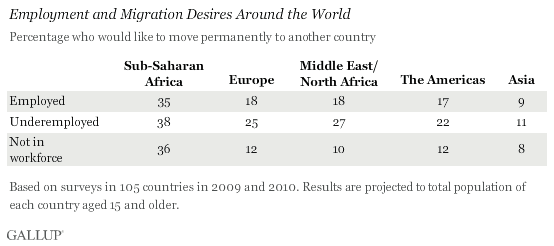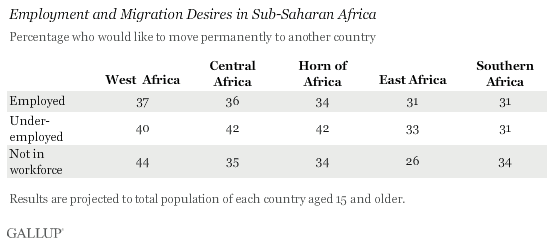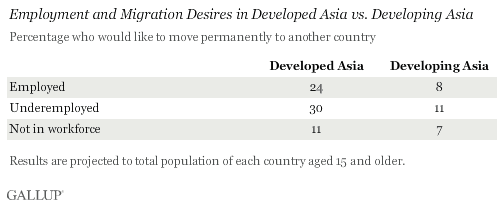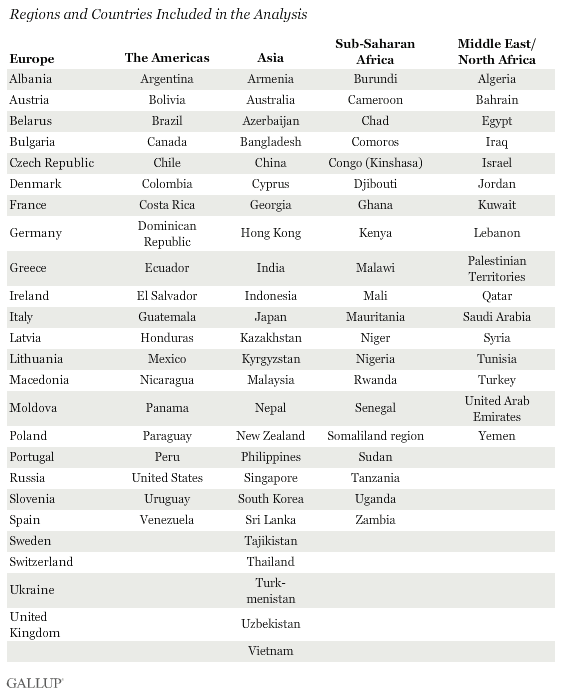WASHINGTON, D.C. -- Underemployed adults in many parts of the world are often the most likely to say they would like to move to another country permanently if given the chance. Job status makes little difference, however, in some places in Asia and in sub-Saharan Africa.

In Europe, the Middle East and North Africa, and the Americas, underemployed adults are significantly more likely than employed adults or those not in the workforce to say they would like to move to another country. In sub-Saharan Africa and Asia, similar percentages in each employment category express the desire to relocate.
These results are based on interviews with 107,404 adults in 105 countries in 2009 and 2010. Gallup classifies respondents as "employed" if they are employed full time or are employed part time but do not want to work full time. Respondents are "underemployed" if they are employed part time but want to work full time or are unemployed. Those "not in the workforce" are not working and are not looking for and/or available for work. They may be full-time students, retired, disabled, or homemakers, though they may not fit any of these scenarios.
Underemployed adults in sub-Saharan Africa -- where Gallup finds more than one-third of residents desire to migrate permanently -- in general are about as likely to want to move as adults in other employment categories. Regionally, employed and underemployed adults in East Africa, Southern Africa, and West Africa are equally likely to say they would like to migrate. Underemployed adults in Central Africa and the Horn of Africa are slightly more likely to want to move than the employed in those regions.

Job status also matters less in some places in Asia, where residents are the least likely globally to desire to migrate. In developing Asia, which includes large countries such as China and India that relatively few desire to leave, the employment situation makes little difference. But in developed Asia, which includes Australia, New Zealand, Singapore, Hong Kong, Japan, and South Korea, underemployed adults are clearly more likely to want to move than those in other employment categories.

Bottom Line
Like their desire to migrate, the factors behind why 700 million people say they would like to move permanently to another country vary by country, region, and level of human development. Gallup's data suggest that for many, the opportunity to be employed at desired capacity is one of these factors. However, in regions that tend to have more developing countries, it's possible that access to education, healthcare, and basic services is so limited that employment status has little effect on the desire to leave.
For complete data sets or custom research from the more than 150 countries Gallup continually surveys, please contact SocialandEconomicAnalysis@gallup.com or call 202.715.3030.
Survey Methods
Results are based on telephone and face-to-face interviews with 107,404 adults in 105 countries in 2009 and 2010. For most countries, sample sizes range between 1,000 and 3,000 interviews. One can say with 95% confidence that the margin of sampling error, accounting for weighting and sample design, is ±2.5 percentage points for figures in this analysis. Results are projected to the total population of each country, aged 15 and older, using 2008 World Bank population estimates.

